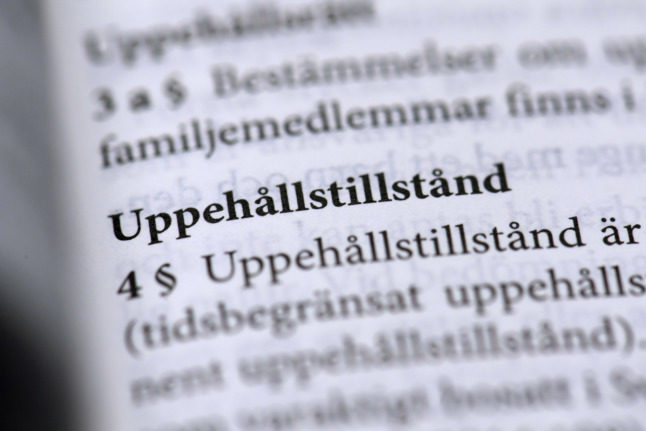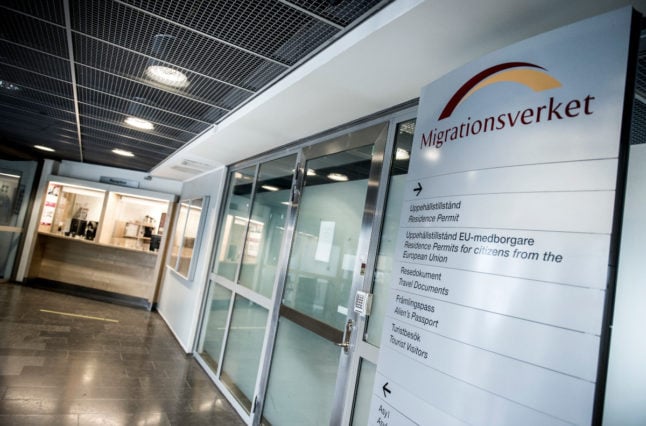Can I keep working in Sweden?
It depends. If you have a residence permit which allows you to work in Sweden, have held that residence permit for at least six months and apply for an extension before your old permit expires, you still have the right to work in Sweden while you wait for the Migration Agency to make a decision on your permit application.
You can apply for a new residence permit 30 days before your old permit expires, at the earliest, and you can’t get a new residence permit before your old one has run out.
Can I leave Sweden?
Technically you can, but it might not be a good idea. This is due to the fact that if you leave Sweden after your residence permit has expired, it can be difficult to enter Sweden again before your new permit is granted, even if you can prove that you’ve applied for a new one.
In the worst-case scenario, you could be denied entry to Sweden at the border and forced to wait in another country until your new residence permit is granted.
If you find yourself in this situation, you can, in some cases, apply for a national visa allowing you to re-enter Sweden. These are only granted under exceptional circumstances, and must be applied for at a Swedish embassy or general consulate in the country you are staying in. If you are not granted a national visa to re-enter Sweden, you can’t appeal the decision, meaning you’ll have to wait until your residence permit is approved before you can re-enter Sweden.
The Migration Agency writes on its website that you should only leave Sweden while your application is being processed “in exceptional cases, and if you really have to”.
It lists some examples of exceptional cases as “sudden illness, death in the family or important work-related assignments”, adding that you may need to provide proof of your reason for travelling to the embassy when you apply for a national visa to re-enter Sweden.
What if I come from a visa-free country?
If you come from a visa-free country, you are able to re-enter Sweden without needing a visa if you have a valid residence permit or are waiting for your residence permit to be extended.
According to the Migration Agency, “if an individual has submitted their extension application in time (before the earlier permit ran out), they also have the right to live and work in Sweden until a decision is made on the application”.
It is important that you are able document this in some way, as visa-free non-EU citizens entering Schengen are only allowed to stay in the bloc for 90 days out of every 180 before they require a visa, unless they can document that they have the right to live in a Schengen country, for example via a residence permit or proof that they have applied for an extension to their residence permit.
If you are a member of this group and you stay in Schengen for longer than 90 days without a visa, a valid residence permit, or proof that you are waiting for an extension on your residence permit, you could be labelled an “overstayer”, which can cause issues entering other countries, as well as applying for a visa or residence permit in the future.
The Migration Agency told The Local that “a visa-free person’s allowance of visa-free days is not used up during the period in which the extension permit is being processed”.
“However, an extension application usually requires the individual to be located in Sweden,” the Agency wrote. “Travelling abroad can, in some cases, have an effect on the decision whether to extend a residence permit or not, in a way which is negative for the applicant, but this decision is made on an individual case basis (it’s not possible to say a general rule).”
“The right to travel into the Schengen area for short visits is not affected, as long as the person still has visa-free days left.”
Does this apply to me if I have a permanent residence permit?
No. This only applies to people in Sweden holding temporary residence permits. If you have a permanent residence permit and your residence permit card (uppehållstillståndskort or UT-kort) expires, you just need to book an appointment at the Migration Agency to have your picture and fingerprints taken for a new card.
How long is the processing time for residence permit renewals?
It varies. For people renewing a residence permit to live with someone in Sweden, for example, the Migration Agency stated in January 2024 that 75 percent of recent cases received an answer within eight months.
For work permit extensions, it varies. Although for those branches listed on the Migration Agency’s website, 75 percent of applicants received a response after 20 months.
This means that some people waiting to extend their residence permits could be discouraged from leaving Sweden for almost a year and a half, unless they are facing “exceptional circumstances”.
You can see how long it is likely to take in your case here.



 Please whitelist us to continue reading.
Please whitelist us to continue reading.
There really needs to be a temporary card or something to be able to go in and out of the country for when the person is waiting for the renewal. Germany does it, and so do other countries, hoping that Sweden can offer this option as well.
Also, you can always send a request to conclude case after 4 months if it’s a work permit extension or after 6 months if it’s any other kind of residence permit.